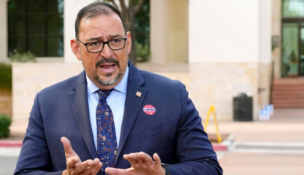State seeks to block in-state tuition for ‘dreamers’
Howard Fischer, Capitol Media Services//January 10, 2017//[read_meter]
State seeks to block in-state tuition for ‘dreamers’
Howard Fischer, Capitol Media Services//January 10, 2017//[read_meter]
Attorneys for the state asked the Court of Appeals Tuesday to block community colleges and the state university system from offering in-state tuition to “dreamers.” Assistant Attorney General Rusy Crandell...
No tags for this post.

















